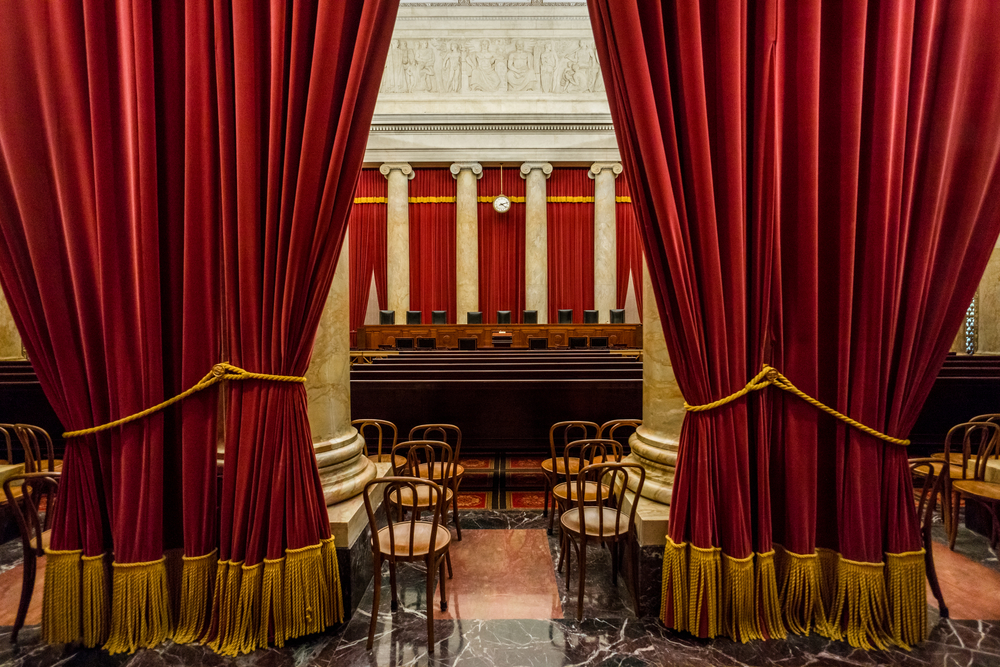In final report, SCOTUS commission takes no position on term limits or expanding the Supreme Court

Image from Shutterstock.
Updated: In a final report approved Tuesday, the Presidential Commission on the Supreme Court of the United States backed continued audio livestreaming of oral arguments, an advisory code of conduct for the justices and more transparency for the "shadow docket."
But the group took no position on more controversial proposals to expand the size of the U.S. Supreme Court or impose term limits on the justices.
The Washington Post, CBS News, Law.com, Law360 and Bloomberg Law have coverage.
President Joe Biden created the bipartisan commission in April to study proposals to reform the Supreme Court. Its membership consisted largely of law professors.
The report said there was “profound disagreement” among commissioners over adding justices to the Supreme Court.
Supporters of the idea “contend that court expansion is necessary to address serious violations of norms governing the confirmation process and troubling developments in the Supreme Court’s jurisprudence that they see as undermining the democratic system,” the report said.
“Opponents contend that expanding—or ‘packing’—the court would significantly diminish its independence and legitimacy and establish a dangerous precedent that could be used by any future political force as a means of pressuring or intimidating the court.”
Although the commission took no position on term limits, it did consider how to draft a constitutional amendment to establish term limits and whether such a system could be adopted by statute. The commission also discussed arguments for and against the idea.
“Proponents of term limits argue that they would help ensure that the court’s membership is broadly responsive to the outcome of elections over time; make appointments to the court more predictable and less arbitrary; reduce the chances that excess power might be concentrated in any single justice for extended periods of time; and enhance the court’s decision-making by ensuring regular rotation in decisionmakers while maintaining judicial independence by guaranteeing long terms and lifetime salaries,” the report said.
“Opponents of term limits argue that eliminating life tenure would weaken the Constitution’s express protection of judicial independence, which could undermine the court’s legitimacy; further politicize the selection and confirmation process by requiring confirmations every two years; heighten the perception that justices are partisan or political actors; and destabilize court doctrine.”
ABA President Reginald Turner said in a statement Wednesday the ABA applauds the work of the commission.
Turner noted that the committee wasn’t asked to make specific recommendations. But its comprehensive report provided context and “thoroughly addressed the history of pertinent issues and examined the potential impacts of proposals that would change the court,” Turner said.
“An independent judiciary is necessary to ensure respect for the rule of law and confidence in our courts,” Turner said. “The ABA remains committed to upholding the Constitution, the judicial process and equal justice under the law.”
Updated Dec. 8 at 3:20 p.m. to include the ABA president’s statement.
See also:
ABAJournal.com: “Presidential commission divided on Supreme Court expansion, ability of Congress to impose term limits”
ABAJournal.com: “Supreme Court term limits have ‘considerable, bipartisan support,’ SCOTUS commission says”
Write a letter to the editor, share a story tip or update, or report an error.


